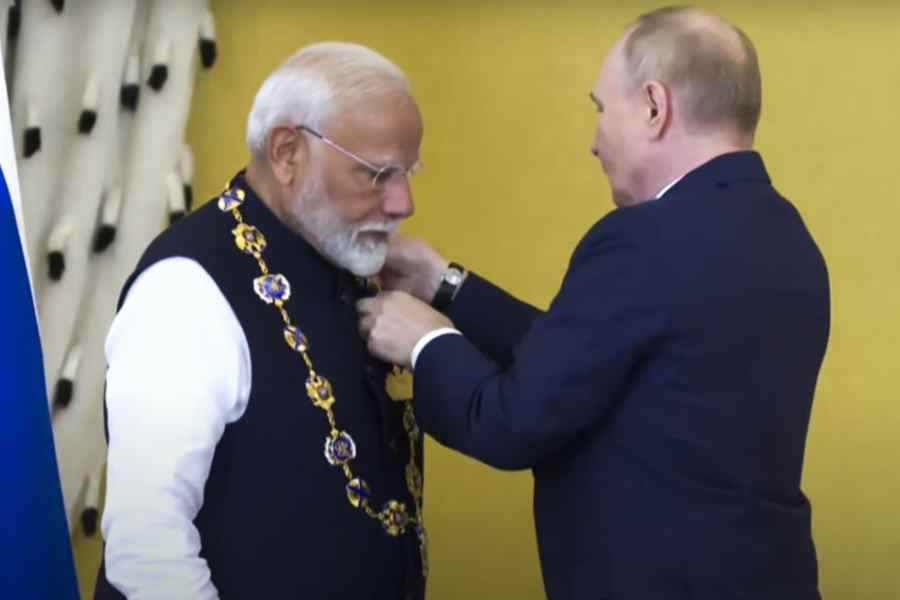With the world’s eyes on him, Prime Minister Narendra Modi embraced the Russian president, Vladimir Putin, during his first visit to Moscow since Russia’s full-fledged invasion of Ukraine in 2022. The meetings took place in the shadow of a deadly missile attack on a Ukrainian children’s hospital, prompting condemnations of Mr Modi’s visit from critics of the Kremlin, including Ukraine’s president, Volodymyr Zelensky. In the United States of America, a state department spokesperson said Washington had expressed its concerns to New Delhi over its relationship with Moscow. The reactions in the West and in Ukraine are unsurprising; but they overlook the complex reality of Moscow-New Delhi ties that are critical for both capitals but also represent the ultimate litmus test for Indian diplomacy. In many ways, the relationship between India and Russia is as strong as they have ever been — and, in some cases, stronger. Russia is today energy-thirsty India’s largest supplier of oil. Agriculture-dependent India gets a third of its fertilisers from Russia. India is also the largest buyer of Russian grain. Before the Ukraine war, an annual trade target of $25 billion looked ambitious. Now, bilateral trade stands at $65 billion: in Moscow, Mr Modi and Mr Putin set a new target — $100 billion by 2030.
But behind these economic gains and the powerful images of bonhomie that emerged from Moscow — of Mr Putin driving Mr Modi and of the two leaders chatting over a walk — lies a more nuanced relationship. Even as it tries to maintain strong ties with Moscow, New Delhi has worked to reduce its traditional dependence on Russian weapons. India and Russia are also fundamentally at odds over China. While New Delhi is aligned with the West in viewing Beijing as a threat, Russia and China are today more closely bound as allies than at any point in decades. That tension was also evident at the Shanghai Cooperation Organisation summit, which took place just before Mr Modi’s Moscow visit. During the summit proceedings, Mr Putin and the Chinese president, Xi Jinping, had discussed a global anti-West alliance. Mr Modi skipped the summit; the foreign minister, S. Jaishankar, represented India at the deliberations. New Delhi has also tried to position itself as a bridge between the West and Russia. Mr Modi hugged Mr Zelensky too recently and in his Moscow meetings with Mr Putin criticised — in broad, philosophical terms — the war in Ukraine. How India walks this tightrope could prove to be a bellwether for its global ambitions.











